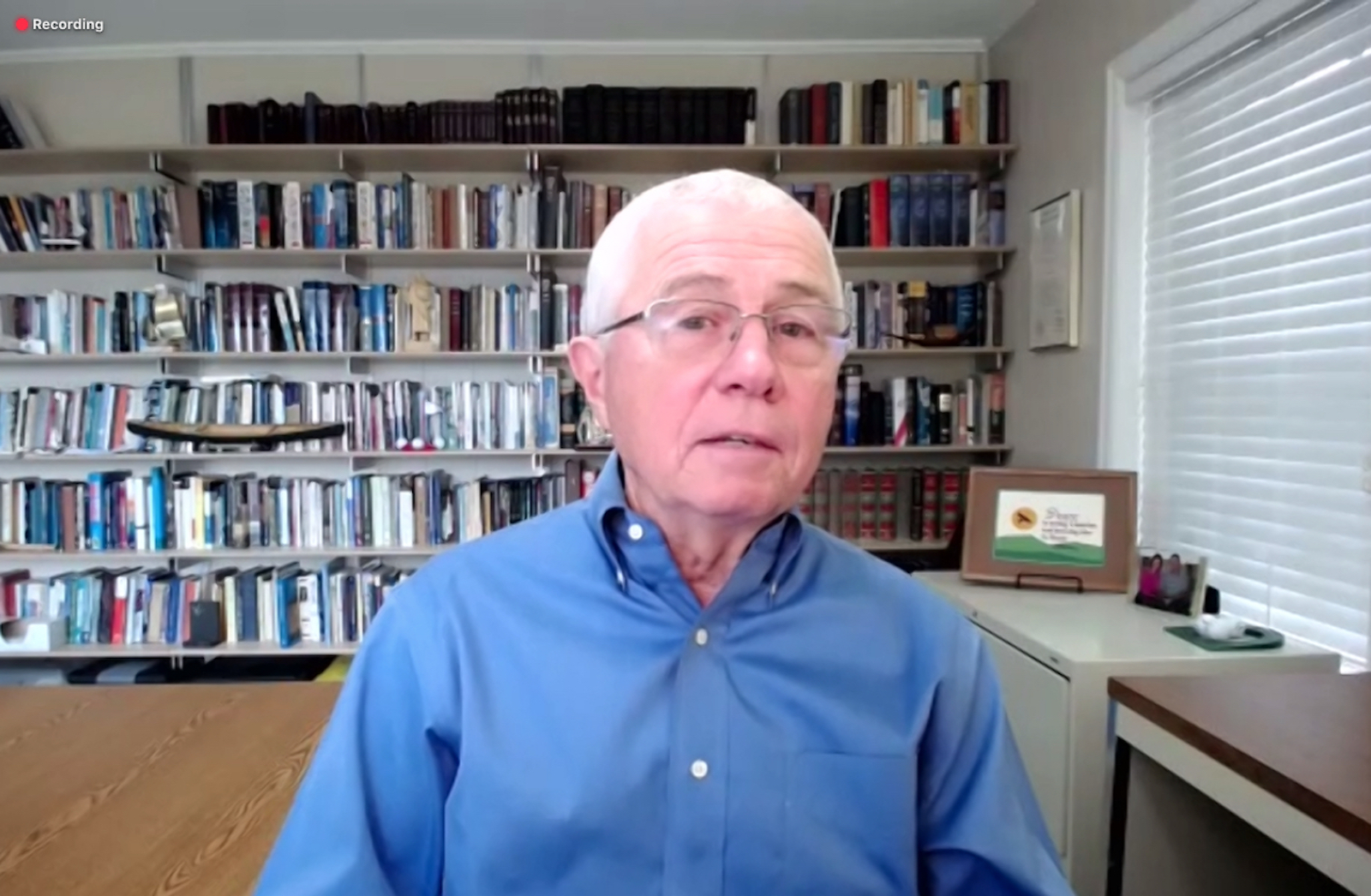The ongoing COVID-19 pandemic reshaped faith communities throughout Chattanooga and the Southeast, bringing new challenges to rituals and forcing congregations to find new ways of creating community.
Rabbi Keliah Lebell, who recently moved to Southeast Tennessee from California, took part in a discussion on the topic, alongside the Rev. Brad Whitaker, rector of St. Paul's Episcopal Church, and the Rev. Doug Jacobs, president of the Chattanooga Association for Clinical Pastoral Care and moderator of the conversation.
The Monday discussion, held virtually, was part of the annual "Book of Life" discussion series on faith and health care hosted by a partnership of local care providers.
The faith leaders said there was a lot of fear and anxiety among their congregations, especially in the early months of the pandemic when so much was unknown about how the virus spread and what could be done to lower risks.
Lebell said many people she knew felt a sense of guilt in expressing the hardships they faced if those struggles were not directly linked to the pandemic. In the more than 18 months since the pandemic began, people struggled with diseases like cancer or struggled with their mental health, but felt they could not say anything because the virus was hurting people in such profound ways.
"They thought to themselves, 'Well, if I don't have COVID, therefore I don't deserve anyone's attention,'" Lebell said. "'I don't deserve my rabbi's attention. I can't call up and ask for their support. They're so busy. They're attending to this health crisis that's ravaging its way across the world. How could they possibly pay attention to me?' And what I needed to tell my people again and again was, 'No, you need to still tell us what you're going through. We want to be there with you, too.'"
In 2020, most faith communities transitioned to online-only services to keep people from gathering in person at houses of worship. As case levels dropped and vaccines became more available, some people of faith opted to return to in-person services. In response, many faith communities adopted a hybrid online and in-person service model.
The pandemic highlighted and widened many inequalities in the Chattanooga area, from access to health care to the ability to quarantine or work from home if someone got sick, Whitaker said. The pastor of the downtown church was the first known case of COVID-19 in the county, an experience he said was scary but also provided a platform to advocate for safety measures since many people know or recognize him.
As the virus killed more and more area residents, families had to grapple with how to honor and mourn loved ones at a distance. Whitaker and Lebell emphasized how important funeral services and other rituals for the deceased are in bringing closure to the living.
Whitaker said he hopes the pandemic will help people see the value of time with loved ones.
"We do so much to try and cut ourselves off from that pain, that maybe this is one of those many, many, many, many things that we're going to learn in COVID. It's important to grab hold and live into that grief and pain and loss and maybe find some ways that we bring that back into it, to express it in ways that's helpful in moving along in that journey," he said.
Lebell said she thinks the pandemic will make communities stronger since many had to rely on neighbors or became more vigilant about checking in on people who they may not have otherwise talked to before 2020.
Strong social bonds are important for someone's spiritual health, she said, along with acknowledgment of how important community is - for the individual.
"Which is really counter-cultural these days, I would say, in American society," she said. "It's very individualistic, and it's not community-oriented."
Contact Wyatt Massey at wmassey@timesfree press.com or 423-757-6249. Follow him on Twitter @news4mass.

